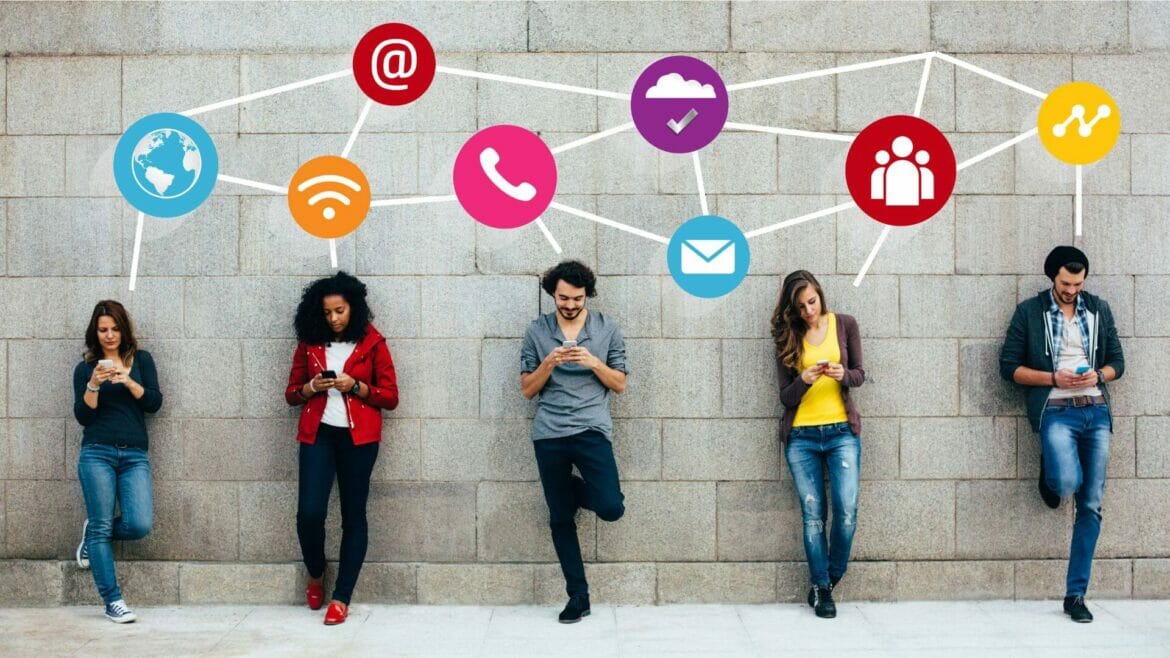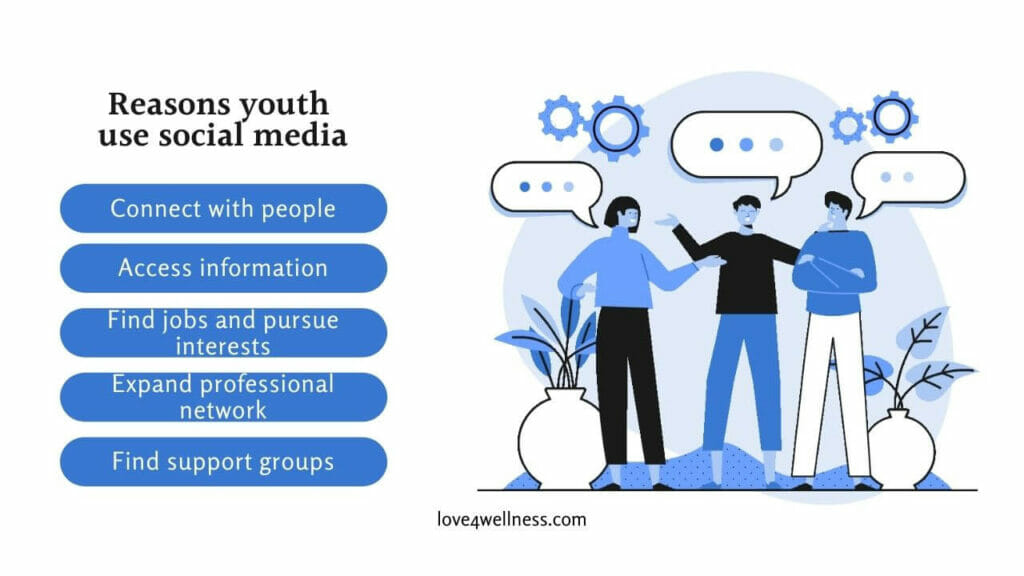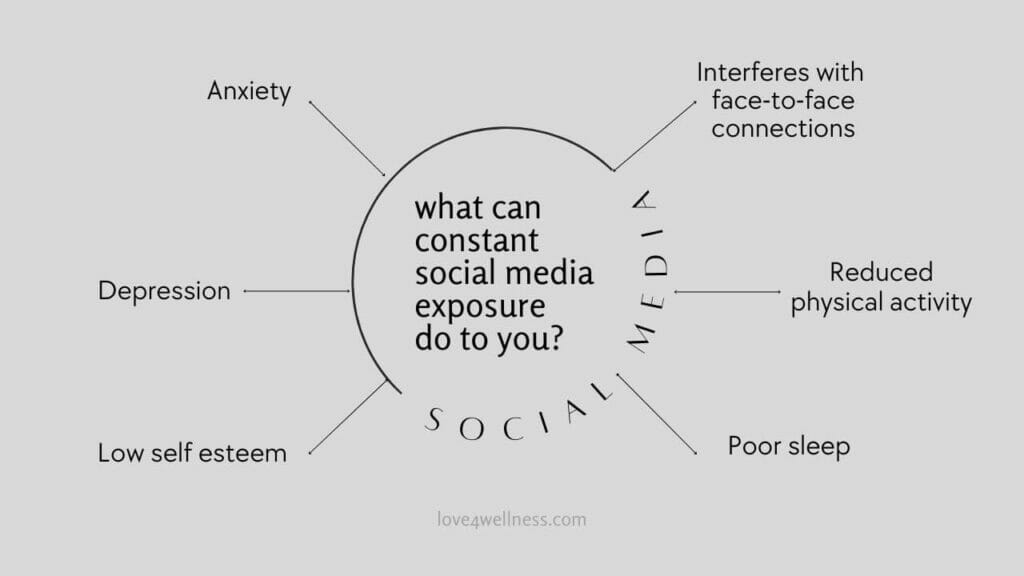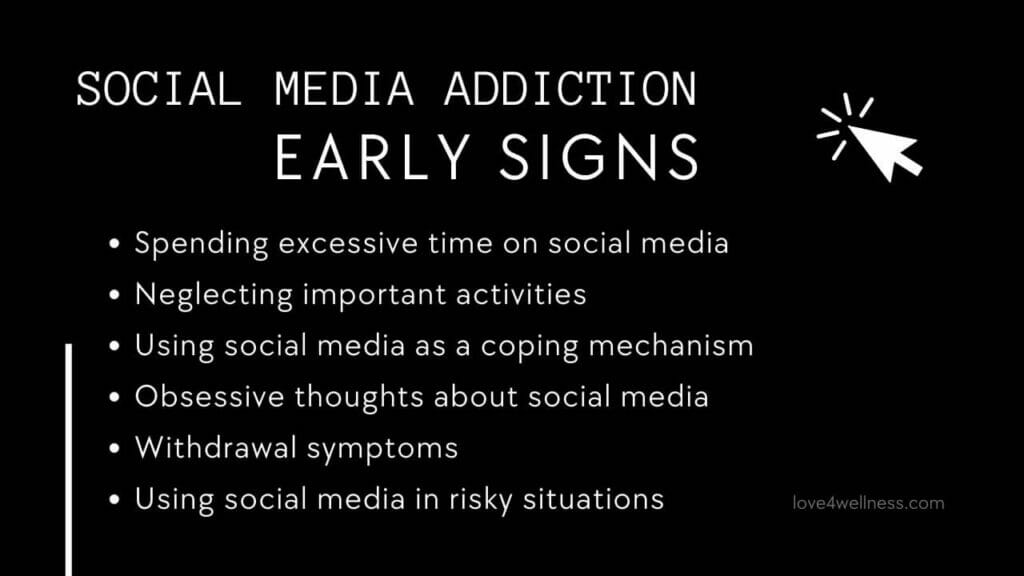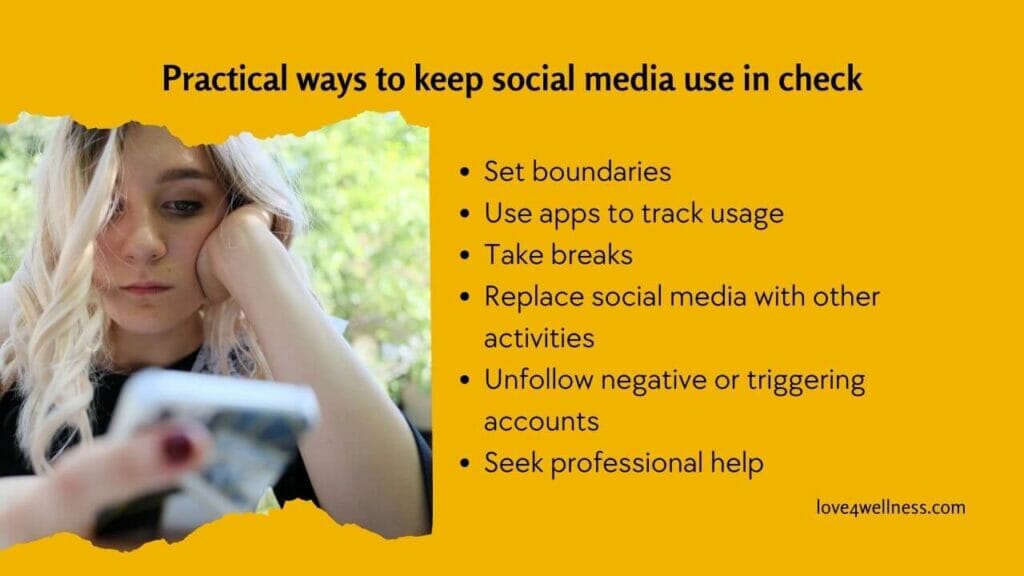We often hear about binge-consuming of digital content and also know it is not good for our health. Over time it may lead to sleep problems, fatigue, heart problems, behavioural problems and cognitive decline. However, digital overload occurs quite frequently. And there are risks you may eventually get into technology or social media addiction. So how do you use them wisely?
This article discusses how excessive time on technology, particularly social media, affects your mental health and, more importantly, may get you addicted. It also provides practical tips for using them wisely.
Is social media a boon or bane?
The debate on “Is social media a boon or bane” continues. But, in an increasingly connected world, can we shy away from social media? Of course, no. However, your responsibility lies in making it a boon for yourself.
Can you imagine how much content in the form of text and videos you consume on social media every day? The number of social media users increased from 4.2 billion in January 2021 to 4.62 billion in January 2022! That is a 10% increase in one year.
Technology and social media can provide a convenient way for people to connect, access information, and seek support. For example, people can use social media to stay in touch with friends and family, join online support groups, or access mental health resources.
However, social media use is associated with security threats, mental health concerns, distraction, addiction, etc. Navigating these threats and using the technology mindfully and wisely is important. Else it can affect your mental health, physical health and emotional health.
Constant exposure to social media can lead to anxiety, depression, and low self-esteem. This is especially true when people compare themselves unfavourably to others or expose themselves to negativity and cyberbullying.
Spending a lot of time online can also interfere with face-to-face social connections, physical activity, and sleep, all of which are important for mental well-being.
Some potential threats of social media
Today’s media landscape is larger and more diverse than ever, with increasing access to an unprecedented volume of digital content across numerous devices, including smartphones, tablets, etc.
Social media is an important part of this landscape. Under this broad definition, social media includes networking sites like Instagram and Facebook, messaging apps like WhatsApp, social gaming tools, YouTube, and more.
Within this environment, peer interactions can occur with increased frequency, immediacy, and intensity. Specific online peer experiences have proven to be risk factors for mental health concerns.
- Being a victim of cyberbullying is often associated with high rates of self-harm and suicidal behaviour.
- Social exclusion and other types of online conflict can also put youth at risk.
- Peer influence may also be amplified online, where youth may access a large range of their peers in addition to potentially risky content.
- People who engage with content portraying self-harm or suicidal behaviours are more likely to emulate those actions as well.
Affects sleep and hence your mental and physical health
Technology and social media have disparate effects on mental health. It is well-established that sleep hygiene is essential to mental health and development. However, research demonstrates a link between mobile screen time before bed and poorer sleep outcomes. These include poor sleep quality, shorter sleep duration, and daytime sleepiness.
Among youth, 40% of adolescents report using a digital device within five minutes before going to sleep, and another 36% report waking up to check their device at least once at night. Hence, the impact of social media on sleep quality remains a key risk for subsequent mental health concerns.
Further, poor sleep can increase the risk of lifestyle diseases such as diabetes and heart disease. Hence, they impact your physical health too.
May lead to social media addiction
Apart from potential threats, spending excessive time on social media may push you into social media addiction. Though it takes time before you get addicted, you often may not know when you crossed the fine line between using social media and being addicted.
Signs you are addicted to social media use
Some early signs of social media addiction or indicators of a toxic relationship with social media include:
1. Spending excessive time on social media
Spending more time than you intended on social media or losing track of time while using social media could be a sign of addiction. Feeling anxious, depressed, or lonely after using social media could be early signs of an addiction problem. It can also lead to procrastination and lack of motivation or overall productivity.
2. Neglecting important activities
Find yourself neglecting important activities like work, school, family, or friends to use social media. That could also be a sign of addiction. It is helpful to find triggers that lead you to use social media excessively to the point that you are neglecting important activities or daily tasks; for instance, if you find yourself opening social media when you are bored, stressed, or anxious, you can identify those feelings and look for healthier ways to cope with them.
3. Using social media as a coping mechanism
Using social media to cope with stress, anxiety, or other emotions could be a sign of addiction.
4. Obsessive thoughts about social media and withdrawal symptoms
It could be a sign of addiction if you constantly think about social media or check your phone for updates. In addition, if you experience withdrawal symptoms such as anxiety, irritability, or depression when you try to reduce or stop your social media use, that is also a potential sign of addiction.
5. Using social media in risky situations
Using social media while driving, in class, or during important meetings could also be a sign of addiction. This can have serious consequences for your safety and reputation.
Some ways to prevent an unhealthy relationship with social media
1. Set boundaries
Set a time limit for social media use and stick to it. For example, limit your social media use to a certain time of day, or set a time limit for each session.
2. Use apps to track usage
Several apps can help you track your social media usage and notify you when you’ve reached your daily limit.
3. Take breaks
Take regular breaks from social media. For example, take a day off from social media each week, or take a break when you feel overwhelmed or addicted.
4. Replace social media with other activities
Find other activities to do instead of scrolling through social media, for example, reading a book, exercising, or spending time with friends and family.
5. Unfollow negative or triggering accounts
Unfollow accounts that make you feel negative emotions or trigger negative behaviours. You can also turn off notifications for social media apps so that you’re not constantly bombarded with notifications that pull you back into the apps.
6. Seek professional help
If you’re struggling with social media addiction and find it difficult to stop on your own, seek professional help from a counsellor or therapist who can help you develop healthy habits and coping mechanisms.
To conclude,
Overall, it is important to use technology and social media in a balanced and mindful way and to be aware of their potential impact on mental health.
Suppose you are suffering from the negative effects of technology and social media on mental health. In that case, we highly recommend seeking support from a mental health professional.
Helpful resources
If you or anyone you know is struggling with social media addiction or mental health issues, the following resources can offer support:
The National Alliance on Mental Illness (NAMI) operates a helpline at 1-800-950-NAMI (6264) in the US. It provides information and support to people with mental illness and their caregivers.
SAMHSA, or the Substance Abuse and Mental Health Services Administration, operates a national helpline at 1-800-662-HELP (4357), which provides 24/7, free, confidential support to people facing mental health or substance abuse problems.
The National Addictions Management Service (NAMS) of Singapore is an umbrella organisation providing support to people with addictive behaviour, including social media addiction.
You can look for similar services located near you. You can also contact a therapist or counsellor for more in-depth support.
Please refer here for more helpful resources.
Images: canva.com
